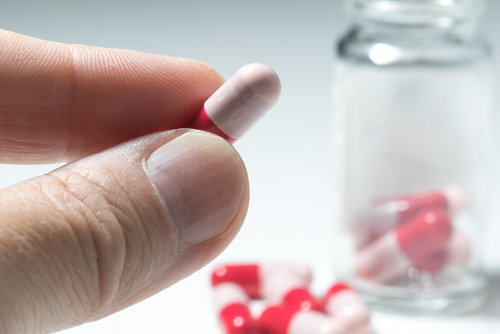
Probiotic Supplements Dosage: How Much Is Enough?
A healthy life is all about balance. The same is true for digestive health. Too much of anything, whether it’s a food, a medication or a supplement, can throw your entire digestive system out of whack. While the average person’s GI tract can withstand a fair amount of abuse—think: fast food, happy hours and dessert buffets—it’s not invincible. When your digestive system goes off-balance, though, it can put a definite damper on your lifestyle and your overall health. Enter probiotics.
What Are Probiotic Supplements?
Your digestive system relies on enzymes to break down the food you eat and bacteria to finish the job. There are more than 300 types of bacteria currently living (and working) in your gut. They are there to salvage energy from undigested carbohydrates, produce B and K vitamins, and help your immune system fight off harmful bugs by competitive inhibition and other methods. Intestinal bacteria are broken down into two types: the good and the bad. The ideal ratio between “good” bacteria and “bad” bacteria in the gut is about 85:15. If the amount of “good” bacteria in your intestines dips below 85 percent, you’ll start to feel “off.” You might experience indigestion, bloating, diarrhea or constipation. You might also experience changes in your appetite. Probiotic supplements are made up of “good” bacteria. While there are few large research studies on the use of probiotics, anecdotally, they’ve helped many patients regain their digestive health by restoring the balance of the 85:15 ratio between “good” bacteria and “bad” bacteria.

Probiotic Supplement Dosage
Because probiotics are supplements, not food or medication, the dosage ranges from brand to brand. Probiotic supplement dosage is measured in colony forming units, or CFUs. What does that mean? Colony forming units indicate the number of live and viable bacteria present in a product. A probiotic supplement should offer at least 1 billion CFUs per dose for adults. That sounds like a lot of bacteria, but it’s actually at the low end of the spectrum. Many probiotic supplements contain up to 10 billion CFUs per dose. There are even supplements with 100 billion CFUs per dose for adults, and as low as 1 billion CFUs per dose for children. Your physician, gastroenterologist or nutritionist can help you figure out which probiotic supplement and dosage is right for you. They may suggest a supplement that contains just one type of bacteria. They may recommend a single supplement that contains a multispecies probiotic blend. Or, they may ask you to combine multiple probiotic supplements to give you the right combination of “good” bacteria your intestines need to get back on balance. What they recommend—and the dosage they suggest—will likely depend on why your digestive system is off-balance to begin with.
Too Much—or Not Enough?
To keep your digestive system healthy, you need to make sure that you’re taking the correct probiotics dosage. Too much of one type of probiotic bacteria may be an unnecessary dent in your wallet. If you’re maintaining a consistent dosage of probiotics, your body does not need high potency products daily. Too little probiotics may not have much of an effect on your overall health. Typical daily probiotic consumption of 1 to 10 Billion CFUs is recommended. Remember, the key is to take probiotics consistently to maintain the probiotics in your gut. It is not intended to be a quick fix. Before you begin taking a probiotic supplement, discuss your options with your doctor. Because probiotics are all different, your doctor will likely instruct you to start with the dosage suggested by the manufacturer. Be patient. Probiotics can take a while to start making a difference. Your doctor might adjust your dosage up or down depending on your progress. Keep in touch with them to ensure that the probiotic you’re taking is working for you, not against you.

Signs You Aren’t Taking Enough (or Are Taking Too Much)
Since probiotic supplements can take time to kick in, it can be difficult to tell when it’s time to make a change and when you need to sit back and wait. To track your progression—or any potential backslides—it might be helpful for you to keep a symptom diary. Make note of food, medications, supplements and symptoms (or lack thereof). Here are some signs that you need to check in with your doctor:
- Your existing symptoms get worse
- You have trouble tolerating food or drinks you had no trouble with before
- You’re experiencing new visible symptoms, like rashes or acne
- You’re feeling worse. Think: depression, anxiety or mood swings
One way to mitigate some bad symptoms? Hydration. Make sure you’re drinking enough water throughout the day. If you’re looking to regain your health, you need to get back in balance. Probiotic supplements are the key to restoring well-being for many otherwise healthy people. While it might take time to get your gut back in tip-top shape, with patience and probiotics, we know you can get there.




